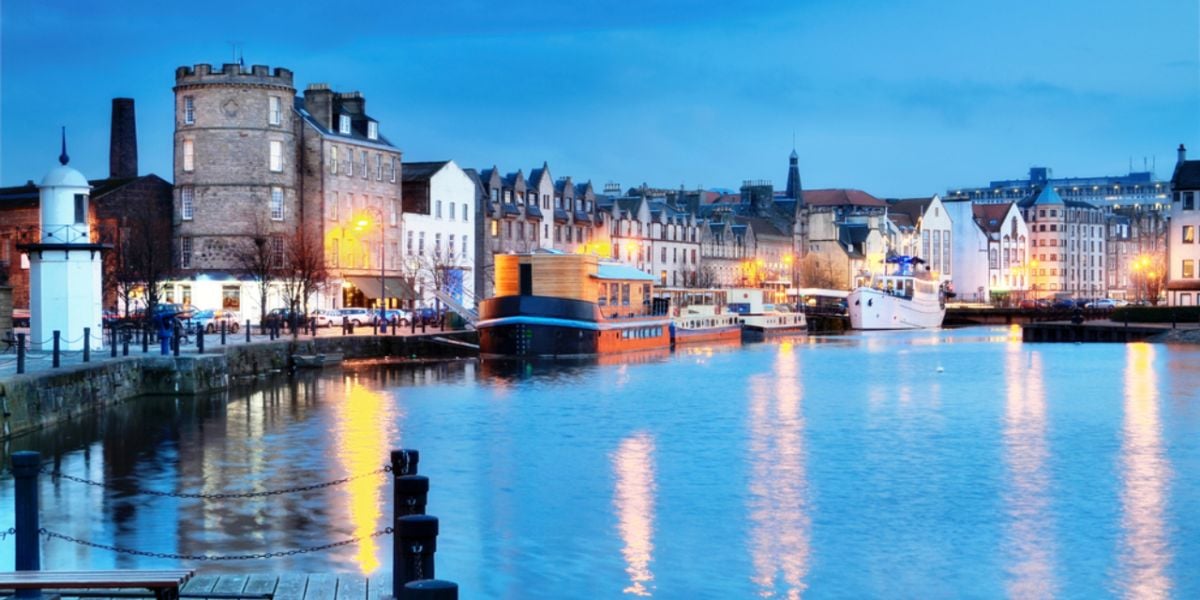
Edinburgh is the most expensive city to buy a house in Scotland. There is currently a huge demand for what is known as mid-market, or affordable housing, and the housing market is very competitive. It might be challenging to find an affordable home quickly. However, the overall housing stock in Edinburgh is well built and high quality, with a wide variety of property styles on the market.
The cost of buying property in Edinburgh
The average house price in Edinburgh in 2019 is £295,000. A two-bedroom flat in the city centre currently costs around £175,000 - £250,000. For a three-bedroom house in Edinburgh, you can expect to pay between £300,000 - £500,000, depending on the postcode and style of the property.
A more affordable option for homebuyers in Edinburgh is to consider one of the many new build developments in the suburbs of the city. Estates of modern family homes are being built in areas such as Portobello, Musselburgh, Dalkeith, and Gorebridge. Moving to a commuter town near Edinburgh is another popular option. These include Livingston, Linlithgow, Bathgate, Falkirk, and Kirkaldy. A three-bedroom detached house in nearby Livingston, for example, costs around £200,000.
Remember to consider any additional fees in costing your home purchase. As well as your legal costs, you also need to pay a Buildings Transaction Tax (LBTT), and a fee charged by the Registers of Scotland. The LBTT is a tax to the government with different rates bands of up to 12%, depending on the value of the property. If you are buying a second home, then there is an additional 4% tax on top of the LBTT. There's a useful LBTT calculator on the Revenue Scotland website.
The house buying process in Scotland
Buying a house in Scotland differs from the rest of the United Kingdom. Before making an offer on a house, you should have a Mortgage Agreement in Principle (AIP) from a bank. This means the bank has assessed your finances and has agreed to provide a mortgage to a set value. This is valid for 90 days, and a small fee may be charged to secure it. Your AIP isn't a formal agreement of the mortgage; however, so you will need to secure things once the offer has been accepted.
To buy a house in Scotland you will need at least a 5% deposit, though on average buyers in Edinburgh provide more like a 23% deposit. As an expat, you may find it useful to visit a mortgage advisor who can inform you which banks will offer you the best deal for your deposit amount and any specific policies they have about lending to non-UK nationals. It is helpful but not essential to have a British bank account when purchasing a property.
All house sellers in Scotland are required to provide a Home Report. This will tell you important information about your potential new property, such as how much it costs to run, how energy efficient the building is, the council tax band, and any key structural information you should be aware of. These are all significant aspects you should consider to help you determine how much you can afford before making an offer on a property, as well as any ways this may impact on how much the bank is willing to lend.
A solicitor is required to put in an offer for you. He or she will also organise the transfer of the property title and payment. Anti-money laundering regulations mean that your solicitor will ask for proof of where the funds for your new home are coming from, so be ready to provide copies of bank statements, as well as your passport and proof of current address.
If there is a lot of demand for a property in Edinburgh, the sale will go to a closing date. This is the date when all offers must be made, and it is up to the seller to choose who they wish to sell their home to. Properties in Edinburgh are listed as either ‘offers over' or ‘fixed price'. If the seller has requested offers over, then the advertised price is the minimum he or she is willing to accept. Meanwhile, a ‘fixed price' means the owner is willing to sell to the first person who can make an official offer of that price. After an offer has been accepted, your solicitor will exchange ‘conclusion of missives' with the seller's solicitor. This is a formal agreement that means both the seller and buyer are legally committed to the sale.
We do our best to provide accurate and up to date information. However, if you have noticed any inaccuracies in this article, please let us know in the comments section below.








